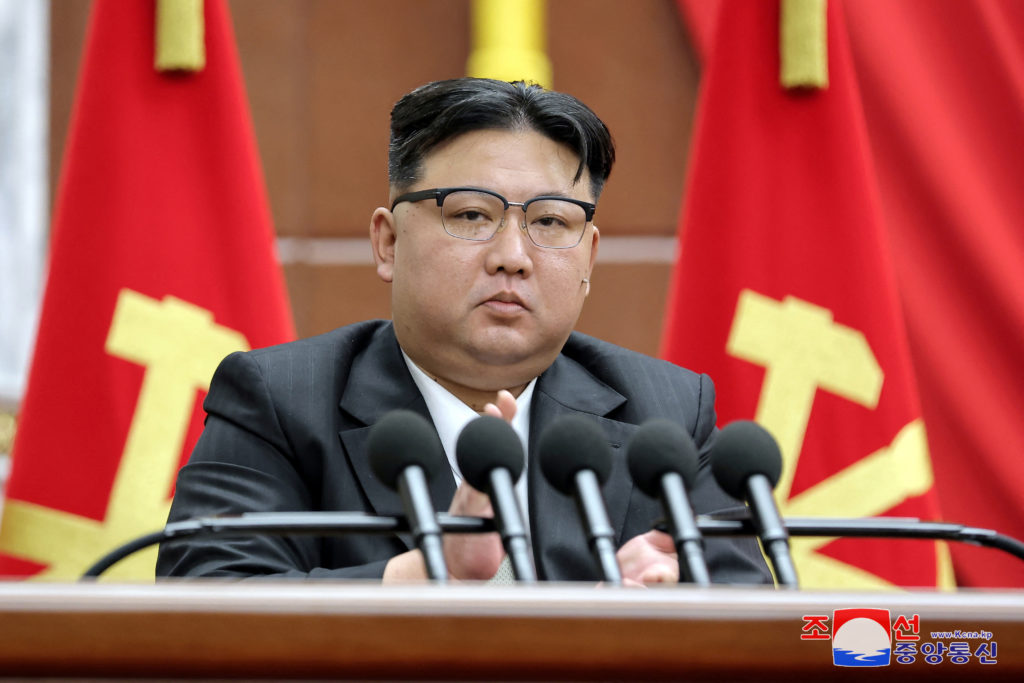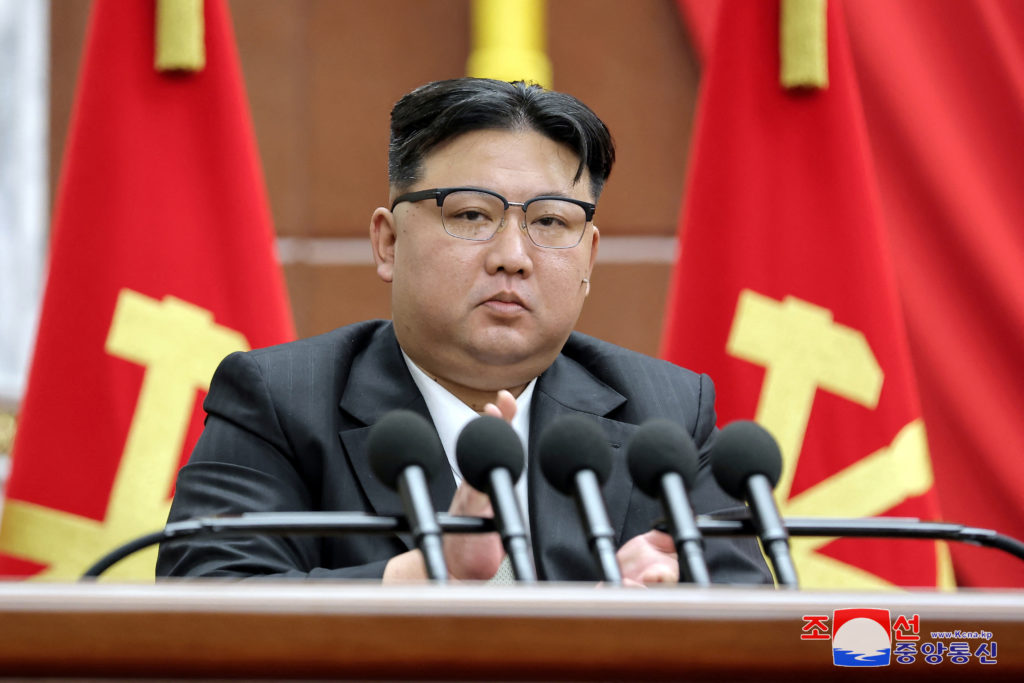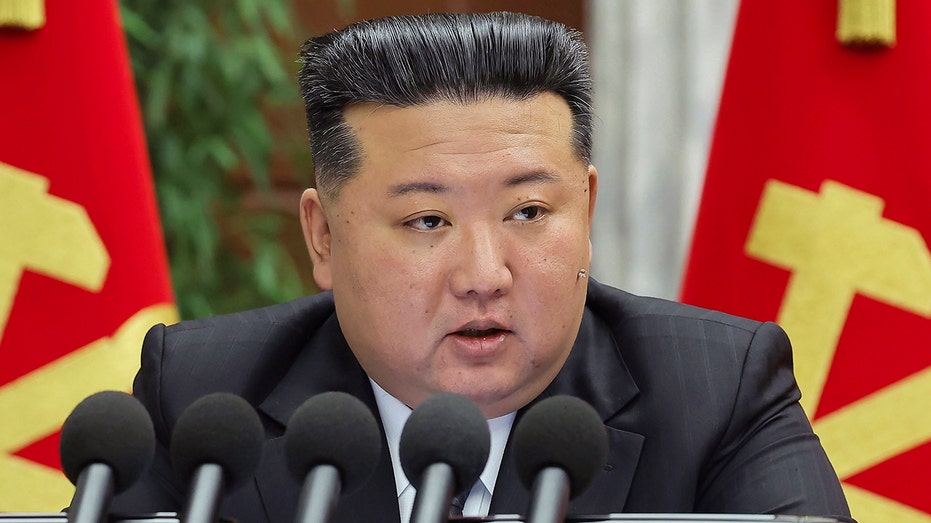
North Korea’s Nuclear Aspirations: A Defiance Against the West
In a bold move that underscores escalating tensions on the Korean Peninsula, North Korea announced on Tuesday its commitment to expand its nuclear arsenal under the leadership of Kim Jong Un. This declaration came alongside a fierce rebuke of U.S.-led efforts aimed at denuclearization in the region, framing them as not only misguided but also hostile to North Korea’s sovereignty.
North Korea’s Response to International Pressure
The North Korean Foreign Ministry didn’t mince words when dismissing the recent pledges made by the United States, South Korea, and Japan regarding denuclearization. Calling the plans an “outdated, absurd plan,” the ministry issued a warning of what it termed “overwhelming and decisive counteraction” to any threats posed against its national security.
An unnamed spokesperson for the ministry emphasized that as long as perceived threats from the U.S. and its allies persist, North Korea’s nuclear weapons will continue to be viewed as a necessary measure for defending its peace and sovereignty. Citing the nation’s constitution, the spokesperson contended that these nuclear capabilities represent “a legitimate self-defense measure.”
Trilateral Commitment to Denuclearization
This stern rejection from Pyongyang follows a crucial meeting held in Germany, where key diplomats from the U.S., South Korea, and Japan reaffirmed their commitment to the “complete denuclearization” of North Korea. U.S. Secretary of State Marco Rubio, along with South Korean Foreign Minister Cho Tae-yul and Japanese Foreign Minister Iwaya Takeshi, emphasized the importance of maintaining existing sanctions against North Korea’s weapons programs.
In addition to sanctions, the three nations pledged to bolster their military capabilities and deterrence efforts. The joint statement highlighted plans for enhanced trilateral military exercises and a commitment to strengthening the military defenses of South Korea and Japan.
The American Perspective: Diplomatic Engagement vs. Military Preparedness
Amid these rising tensions, U.S. President Donald Trump recently met with Japanese Prime Minister Shigeru Ishiba at the White House. During their discussions, Trump reiterated his administration’s approach to North Korea, suggesting that while military preparedness is essential, there remains room for diplomatic engagement.
Trump remarked, “We will have relations with North Korea, with Kim Jong Un. I get along with them very well.” This comment reflects a continuity in Trump’s strategy, which has oscillated between confrontation and dialogue since his historic meetings with Kim Jong Un in 2018 and 2019. His first meeting in Singapore was notable not only as a summit between the two leaders but also as a significant diplomatic milestone, making Trump the first sitting U.S. president to engage directly with a North Korean leader.
The Significance of North Korea’s Nuclear Expansion
North Korea’s announcement comes in the context of ongoing sanctions imposed by the U.N. and the international community in response to its aggressive weapons development. The nuclear program is often seen as a critical pillar of the regime’s legitimacy, enabling Pyongyang to project power and deter perceived threats from the U.S. and its allies.
The continuation of its nuclear program signals North Korea’s refusal to capitulate to international pressures aimed at dismantling its arsenal, highlighting the regime’s commitment to what it views as necessary measures for national defense. Analysts suggest that this declaration serves to entrench Kim Jong Un’s leadership domestically, solidifying his position by appealing to nationalistic sentiments rooted in sovereignty and security.
Looking Ahead: Implications for Regional Security
The implications of North Korea’s nuclear aspirations are profound, extending beyond the immediate concerns of Pyongyang’s neighbors. With the U.S., South Korea, and Japan reinforcing their military collaborations, the atmosphere in the region is poised to become increasingly tense. Observers worry that as North Korea enhances its nuclear capabilities, it could spark an arms race in East Asia, prompting South Korea and Japan to reconsider their own defense strategies.
Moreover, North Korea’s determination to maintain and expand its nuclear arsenal reflects the challenges of diplomatic engagement. Efforts on the part of the U.S. and its allies may find themselves at a stalemate, leading to a precarious balance of power in the region and continually increasing risks of miscalculation or conflict.
Conclusion
As North Korea doubles down on its nuclear ambitions, the prospect of disarmament appears increasingly distant. The ongoing diplomatic stalemate presents significant challenges to regional stability and global security. In this tense environment, the future of North Korea’s relationship with the international community remains uncertain, relying heavily on the interplay of military posturing and diplomatic negotiations.
This report includes contributions from Fox News Digital’s Chris Massaro and The Associated Press.


















